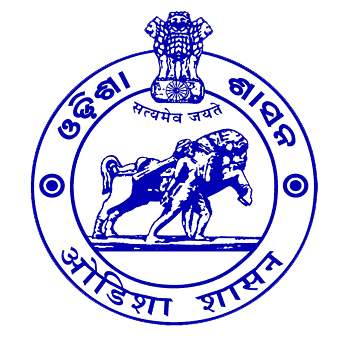ECRICC Project Governance Structure
The ECRICC project operates through a robust, multi-tier governance structure designed to ensure effective implementation, coordination, and monitoring. It integrates stakeholders at the state, district, and village levels for comprehensive project execution to ensure a long term impact. Below is an overview of its governance framework:
State-Level Governance
State-Level Steering Committee on Climate Change
- Chaired by Chief Secretary, Government of Odisha
- Key responsibilities:
- Oversee policy alignment and strategic guidance for project implementation.
- Monitor progress and ensure inter-departmental collaboration.
State Project Management Unit (SPMU)
- Comprises a State Project Director, technical experts, and support staff.
- Responsibilities include:
- Coordinating with the National Project Management Unit (NPMU) and UNDP.
- Providing overall project management, technical assistance, and reporting.
- Managing partnerships with stakeholders like IIT Bhubaneswar and line departments.
Specialized Roles within SPMU
- State Project Manager: Overall Management of the project
- Socio-Economic and Livelihood Associate: Focuses on community livelihoods and socio-economic development.
- Monitoring and Evaluation (M&E) Associate: Tracks project performance and ensures adherence to outcomes.
- Communication Associate: Manages awareness campaigns and community outreach.
- Admin and Finance Associate: Handles financial management and administrative support.
District-Level Governance
District Level Coordination Committee (DLCC)
- Chaired by the District Collector with the Divisional Forest Officer (DFO) serving as the nodal officer.
- Members include line department officials (e.g., Fisheries, Agriculture), representatives of SHGs, and Eco-Development Committees.
- Responsibilities:
- Ensure inter-departmental coordination and convergence of resources.
- Approve district-specific action plans and oversee implementation.
District Project Management Unit (DPMU)
- Comprises the District Coordination Officer, Subject Matter Specialists (SMS) for Fisheries and Agriculture, and Finance Officers.
- Key roles:
- Monitor project activities at the district level.
- Engage local institutions and facilitate training programs.
Village-Level Governance
Village-Level Committees
- Includes SHGs/SHG Federations, Eco-Development Committees (VSS/JFM), and other community-based organizations.
- Responsibilities:
- Facilitate grassroots-level project implementation.
- Encourage community participation in ecosystem restoration and capacity-building activities.
- Monitor and report progress at the local level.
Village Facilitators (Climate Champions)
- A total of 304 Village Facilitators trained to act as "Climate Champions."
- Serve as on-ground coordinators to implement climate-resilient practices and engage the community.
Collaboration and Partnerships
National Project Management Unit (NPMU)
- Operates under the Ministry of Environment, Forest, and Climate Change (MoEFCC).
- Collaborates with UNDP to provide high-level oversight and guidance.
- Coordinates with the State and District units for technical and administrative support.
Technical Support Agency
- IIT Bhubaneswar is engaged as the Technical Support Agency for Seagrass and Saltmarsh Protection, Management, and Restoration: Provides scientific expertise and guidance on restoration techniques and ecosystem management.
- CIFA:
- NRRI:
- MPEDA
Key Stakeholders
- Forest, Environment & Climate Change Department, GoO: Acts as the lead agency for project management.
- Line Departments: Includes Fisheries, Agriculture, and other relevant departments for project alignment with sectoral objectives.
- UNDP: Technical partner providing implementation support and capacity-building expertise.
- FNGOs: Seven Facilitating Non-Governmental Organizations (FNGOs) have been engaged across seven landscapes to ensure active community participation, promote sustainable practices, and support the implementation of climate resilience initiatives.
Reporting and Accountability
- Regular review meetings are conducted at the state, district, and village levels to ensure alignment with objectives.
- Monitoring and Evaluation (M&E) mechanisms are in place to track progress and outcomes.
- Transparent financial management is ensured through regular audits and reporting.

